How Much Does Electrician Get Paid
How Much Does Electrician Get Paid? The Ultimate Salary Guide for Future Sparkies
Are you considering a career as an electrician but the big question looming in your mind is, "How much does electrician get paid?" You're not alone. Choosing a trade is a major decision, and understanding the earning potential is crucial. The good news is that the electrical trade is stable, demanding, and often pays very well once you gain experience.
The short answer is: it varies dramatically based on location, experience, and specialization. However, we can certainly give you a comprehensive breakdown. Forget generic numbers; let's dive into the real factors that determine an electrician's paycheck, from apprentices just starting out to master electricians running major projects.
The Short Answer: Average Electrician Salaries
When trying to figure out how much an electrician gets paid, we often look at national averages. According to major labor statistics sources (like the US Bureau of Labor Statistics, for example), the median annual wage for electricians tends to fall in a comfortable mid-range.
Currently, many sources suggest the average annual salary for a working electrician hovers around $56,000 to $65,000 USD. Keep in mind, this is a national median, meaning half earn more, and half earn less. If you are highly specialized or live in a high-cost-of-living area, your paycheck could easily be 30% higher than this average.
The true range is massive, often starting as low as $35,000 for a first-year apprentice and soaring past $100,000 for experienced, unionized, or specialized master electricians.
Key Factors Influencing Electrician Pay
Why such a huge spread in salaries? Several variables immediately influence how much an electrician gets paid. Understanding these factors is key to maximizing your earning potential throughout your career.
Here are the biggest determinants of your salary:
- Experience Level and Licensing: Are you an apprentice, a journeyman, or a master? Each promotion comes with a significant pay jump.
- Geographic Location and Cost of Living: Electricians in New York or California typically earn much more than those in rural areas, primarily due to higher demand and the cost of living index.
- Specialization: Working on residential wiring pays differently than working on industrial machinery or high-voltage transmission lines.
- Union vs. Non-Union: Union electricians (especially those in the IBEW) often receive higher base pay rates, better benefits, and defined pension plans compared to their non-union counterparts.
- Employment Type: Working for a large commercial contractor generally offers more stable, higher wages than working for a small residential shop or being self-employed (unless you manage your own highly successful business).
Breaking Down Pay Levels: Apprentice, Journeyman, Master
Your earning journey as an electrician is structured and predictable. You move through distinct licensing phases, and your salary reflects the complexity and responsibility of your work.
- Apprentice Electrician: This is where you start. Apprenticeships usually last 4 to 5 years and combine classroom instruction with paid on-the-job training. Apprentices typically earn 40% to 60% of the journeyman wage initially, with steady increases every six months or year. A first-year apprentice might make $15–$20 per hour, but by their final year, they could be earning $25–$35 per hour, depending on the region.
- Journeyman Electrician: Once you complete your apprenticeship and pass your state or provincial licensing exam, you become a journeyman. You are now fully qualified to work independently. This is when the question, "How much does electrician get paid?" starts yielding significant numbers. Journeymen form the backbone of the industry and typically earn within the $55,000 to $85,000 annual range.
- Master Electrician: After gaining several years (usually 2 to 4) of experience as a journeyman, you can test to become a Master Electrician. Masters have a deep understanding of electrical theory and codes and are often responsible for designing systems, pulling permits, and overseeing large crews. Master electricians routinely earn $80,000 to $120,000+, especially if they own their own company or hold a supervisory role.
Geographical Differences in Electrician Wages
Location is perhaps the single largest factor skewing the data on how much an electrician gets paid. If you are comparing a journeyman working in San Francisco to one in rural Mississippi, the wage difference can be double.
Wages are generally highest on the coasts (Northeast and West Coast) and in major metropolitan areas with high union density and robust commercial construction markets. Cities like Seattle, New York, Boston, and San Jose consistently show higher average electrician salaries, often exceeding $45 per hour for experienced journeymen.
Conversely, in regions with a lower cost of living and less union activity, the pay rates are naturally lower. While the hourly rate might be lower, it's important to remember that the purchasing power of that money might still be strong locally.
Specialized Fields That Pay More
If you want to move beyond the standard residential and commercial rates, specializing is your path to the top tier of electrician salaries. Specialization often means mastering more complex, dangerous, or niche technologies, and employers are willing to pay a premium for that expertise.
Fields where you can earn significantly more include:
- Industrial Electricians: Working in factories, manufacturing plants, or refineries. This work involves high-voltage systems, complex machinery (like PLCs or VFDs), and harsh environments. Pay frequently exceeds $90,000 annually.
- High-Voltage Linemen: These are the folks who work on power lines and infrastructure. The job is highly dangerous and specialized, resulting in some of the highest pay rates in the trade, often well into six figures, plus significant overtime potential.
- Renewable Energy (Solar/Wind): As the green energy sector booms, electricians specializing in solar panel installation (PV systems) or wind turbine maintenance are highly sought after. These skills require additional, specialized training but offer excellent growth potential.
- Instrumentation and Controls: Focusing on precision measurement, calibration, and controlling automated systems. This often blends electrical work with engineering knowledge, commanding top-tier wages.
The Benefits of Being an Electrician (Beyond the Salary)
When assessing how much an electrician gets paid, it's critical to look beyond the hourly wage. The total compensation package often includes excellent benefits that add significant value to your career, especially if you join a union or work for a large commercial company.
These benefits often include:
Job Security: Electricity is essential, meaning licensed electricians are always in demand, regardless of the economy. This translates to exceptional job security compared to many office jobs.
Retirement Funds: Many union positions and large companies offer defined benefit pension plans or generous 401(k) matching contributions, ensuring a stable retirement.
Health Coverage: Comprehensive health, dental, and vision insurance packages are standard, often covering the entire family with little to no employee contribution.
Paid Training: Apprenticeships and continuing education units (CEUs) are frequently paid for by the employer or the union, allowing you to continually upgrade your skills without incurring debt.
Conclusion: So, How Much Does Electrician Get Paid?
Determining exactly "How much does electrician get paid?" requires understanding that pay is based on a structured system of progression, location, and specialization. While a brand-new apprentice might start around $30,000 to $40,000 per year, a qualified journeyman can expect to comfortably earn between $60,000 and $85,000 annually.
For those willing to pursue master licensing, join specialized sectors like industrial or solar, or work in high-demand metropolitan areas, earning six figures is highly achievable. The electrician trade offers a clear path to financial security, robust benefits, and excellent job stability, making it one of the most rewarding trades you can enter.
Frequently Asked Questions (FAQ)
- What is the difference in pay between a union and non-union electrician?
- Union electricians (especially IBEW members) typically have higher average base wages and much stronger benefits packages, including pensions, compared to non-union electricians. The difference can sometimes be 15–30% in total compensation.
- How long does it take to go from an Apprentice to a Journeyman?
- The path usually takes between four and five years. This includes completing the required on-the-job hours (often 8,000 hours) and classroom instruction hours mandated by your state or jurisdiction.
- Do electricians get paid overtime?
- Yes, absolutely. Overtime is common, particularly in commercial and industrial construction, or when working on emergency calls. Time-and-a-half (1.5 times the hourly rate) is standard for hours worked beyond 40 in a week, significantly increasing the potential annual income for hardworking electricians.
- Which state pays the highest salary for electricians?
- States with high costs of living and dense union presence, such as New York, Illinois, Hawaii, and parts of California, generally offer the highest average wages for licensed electricians.
How Much Does Electrician Get Paid
How Much Does Electrician Get Paid Wallpapers
Collection of how much does electrician get paid wallpapers for your desktop and mobile devices.

Gorgeous How Much Does Electrician Get Paid Image for Mobile
This gorgeous how much does electrician get paid photo offers a breathtaking view, making it a perfect choice for your next wallpaper.
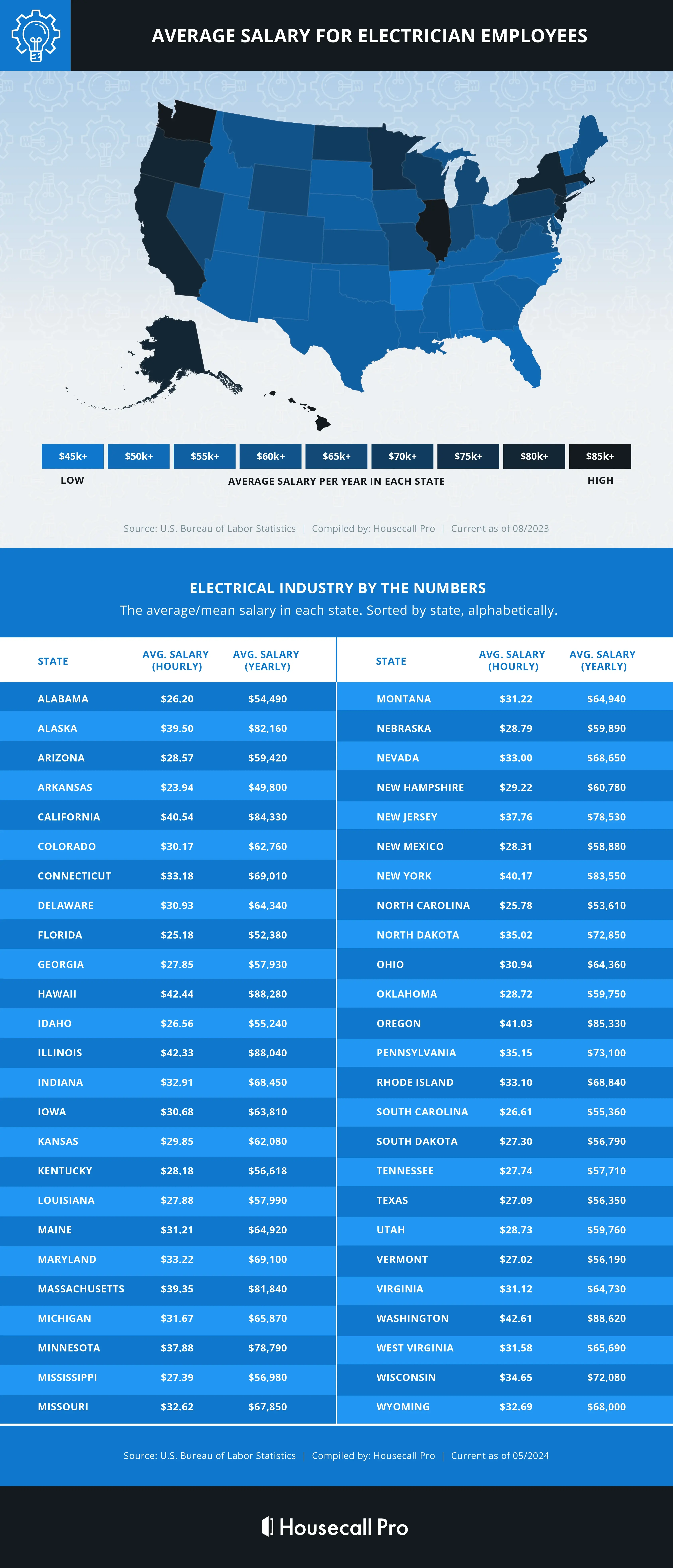
High-Quality How Much Does Electrician Get Paid Photo Concept
Experience the crisp clarity of this stunning how much does electrician get paid image, available in high resolution for all your screens.
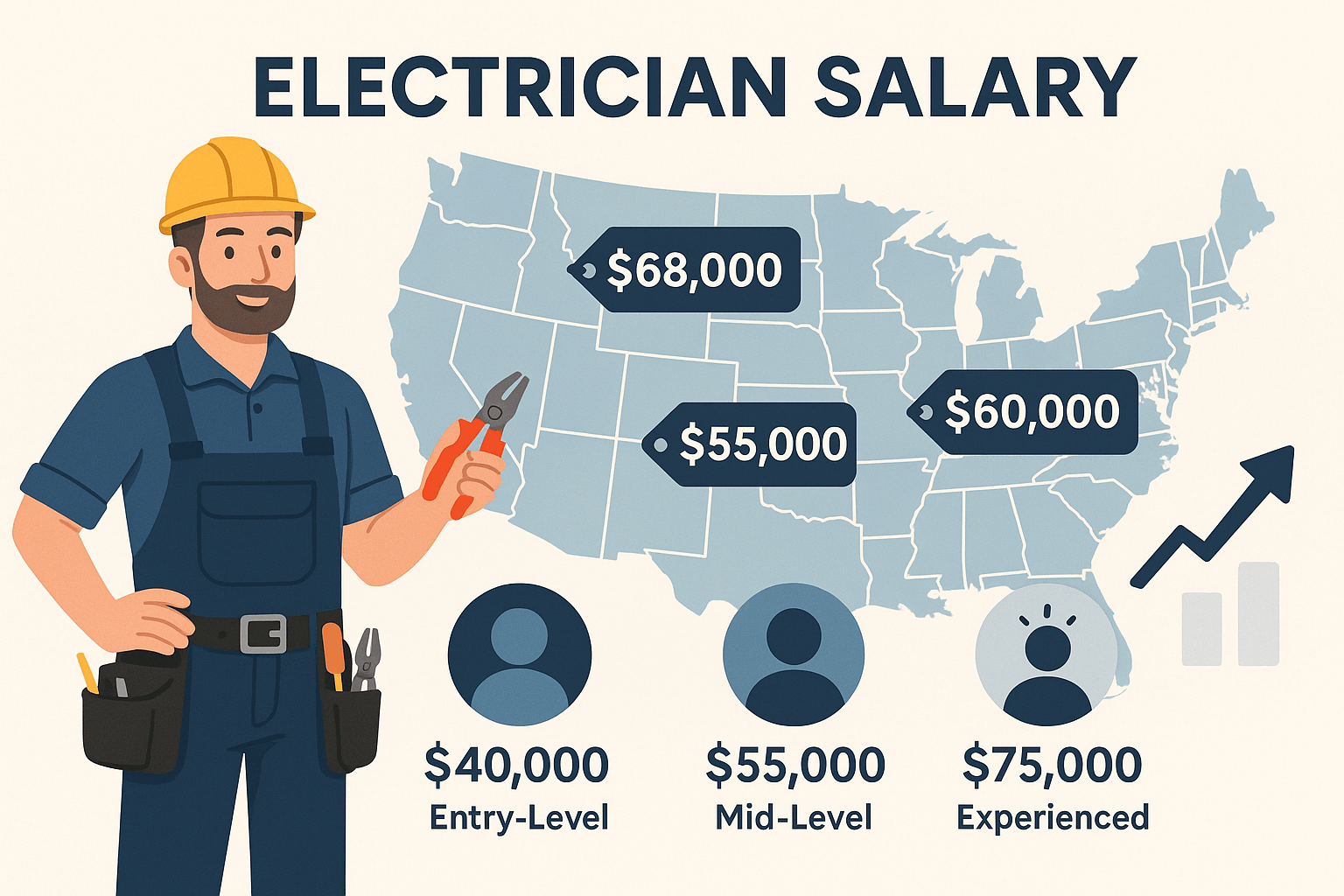
Exquisite How Much Does Electrician Get Paid Photo in 4K
Find inspiration with this unique how much does electrician get paid illustration, crafted to provide a fresh look for your background.

Beautiful How Much Does Electrician Get Paid Artwork Concept
Explore this high-quality how much does electrician get paid image, perfect for enhancing your desktop or mobile wallpaper.

Lush How Much Does Electrician Get Paid Background Concept
This gorgeous how much does electrician get paid photo offers a breathtaking view, making it a perfect choice for your next wallpaper.

Exquisite How Much Does Electrician Get Paid Scene in 4K
Immerse yourself in the stunning details of this beautiful how much does electrician get paid wallpaper, designed for a captivating visual experience.
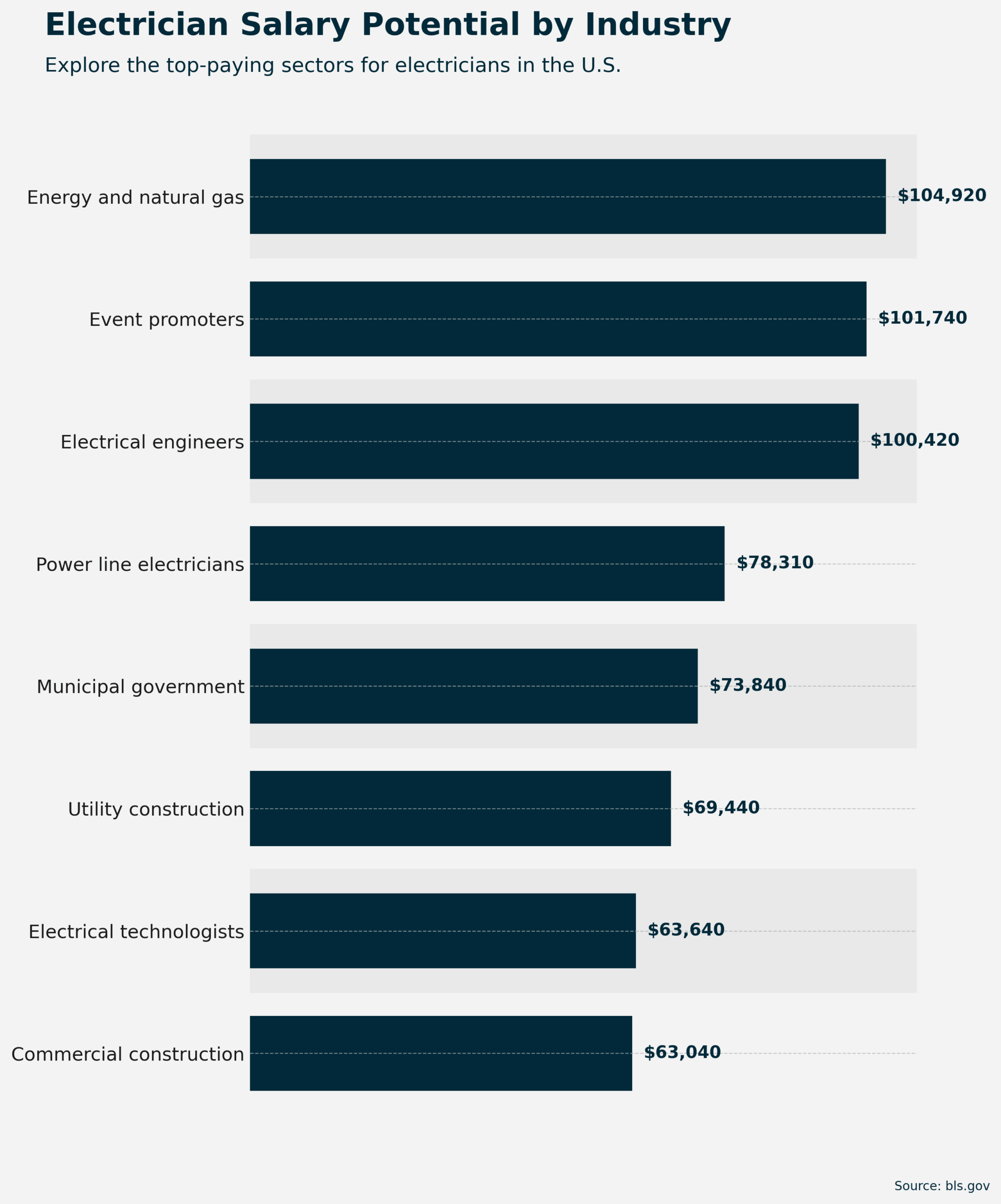
Artistic How Much Does Electrician Get Paid Photo Collection
This gorgeous how much does electrician get paid photo offers a breathtaking view, making it a perfect choice for your next wallpaper.

Captivating How Much Does Electrician Get Paid Background Collection
A captivating how much does electrician get paid scene that brings tranquility and beauty to any device.

Amazing How Much Does Electrician Get Paid Picture for Your Screen
Discover an amazing how much does electrician get paid background image, ideal for personalizing your devices with vibrant colors and intricate designs.

Breathtaking How Much Does Electrician Get Paid Scene Collection
Explore this high-quality how much does electrician get paid image, perfect for enhancing your desktop or mobile wallpaper.

Detailed How Much Does Electrician Get Paid Background Concept
Discover an amazing how much does electrician get paid background image, ideal for personalizing your devices with vibrant colors and intricate designs.

Stunning How Much Does Electrician Get Paid Image Concept
A captivating how much does electrician get paid scene that brings tranquility and beauty to any device.

Artistic How Much Does Electrician Get Paid Photo Concept
This gorgeous how much does electrician get paid photo offers a breathtaking view, making it a perfect choice for your next wallpaper.
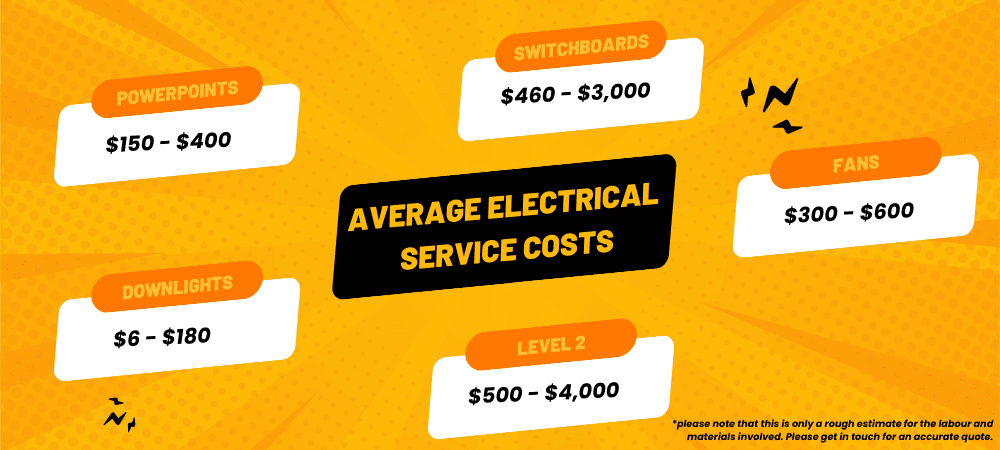
Vibrant How Much Does Electrician Get Paid Landscape Art
Experience the crisp clarity of this stunning how much does electrician get paid image, available in high resolution for all your screens.
Dynamic How Much Does Electrician Get Paid Design in HD
Immerse yourself in the stunning details of this beautiful how much does electrician get paid wallpaper, designed for a captivating visual experience.
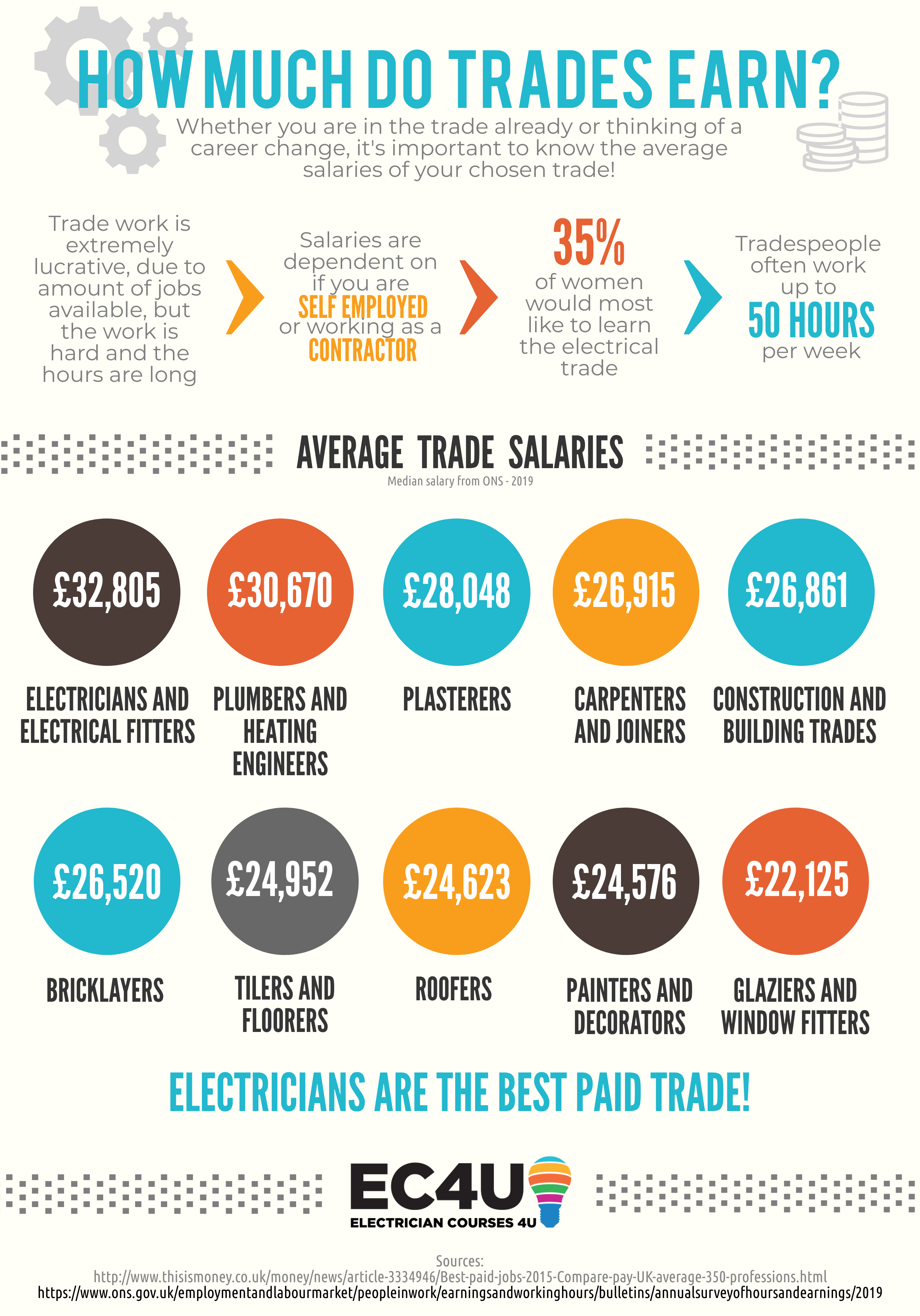
Crisp How Much Does Electrician Get Paid Photo Photography
Immerse yourself in the stunning details of this beautiful how much does electrician get paid wallpaper, designed for a captivating visual experience.

Captivating How Much Does Electrician Get Paid Landscape for Mobile
A captivating how much does electrician get paid scene that brings tranquility and beauty to any device.

Crisp How Much Does Electrician Get Paid Artwork in HD
Immerse yourself in the stunning details of this beautiful how much does electrician get paid wallpaper, designed for a captivating visual experience.

Detailed How Much Does Electrician Get Paid Image Digital Art
Experience the crisp clarity of this stunning how much does electrician get paid image, available in high resolution for all your screens.

Serene How Much Does Electrician Get Paid Abstract Art
Transform your screen with this vivid how much does electrician get paid artwork, a true masterpiece of digital design.
Download these how much does electrician get paid wallpapers for free and use them on your desktop or mobile devices.
0 Response to "How Much Does Electrician Get Paid"
Post a Comment